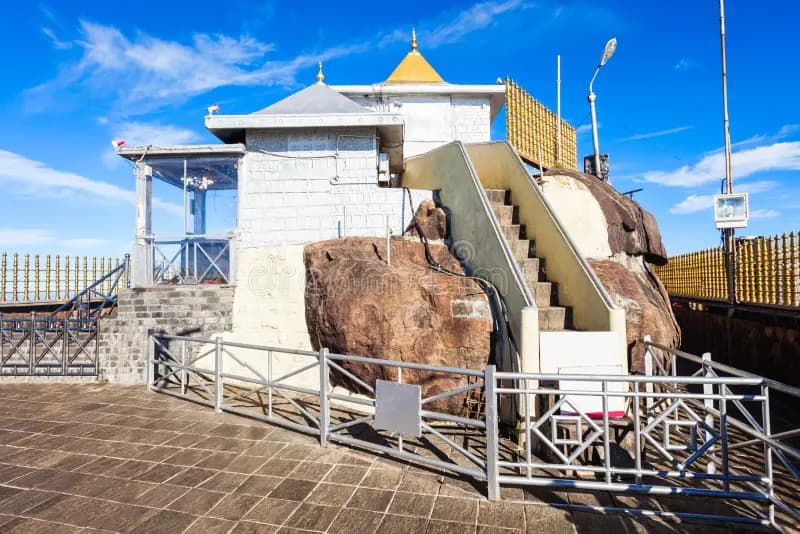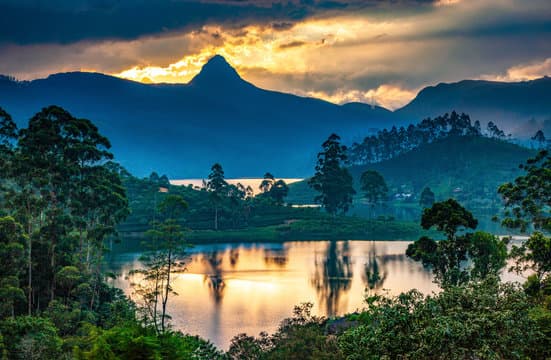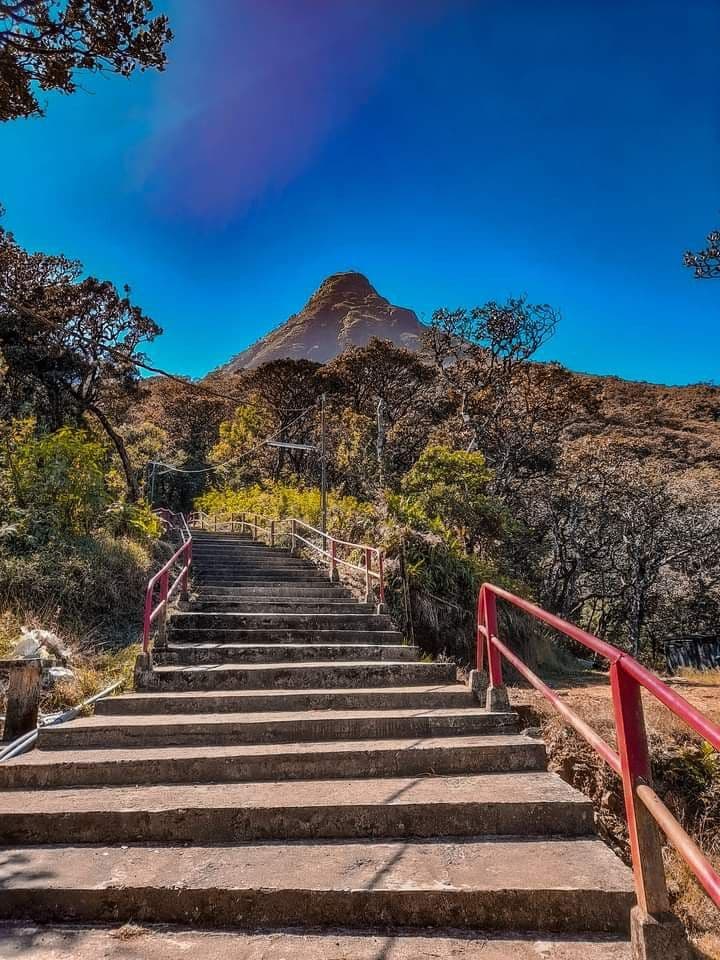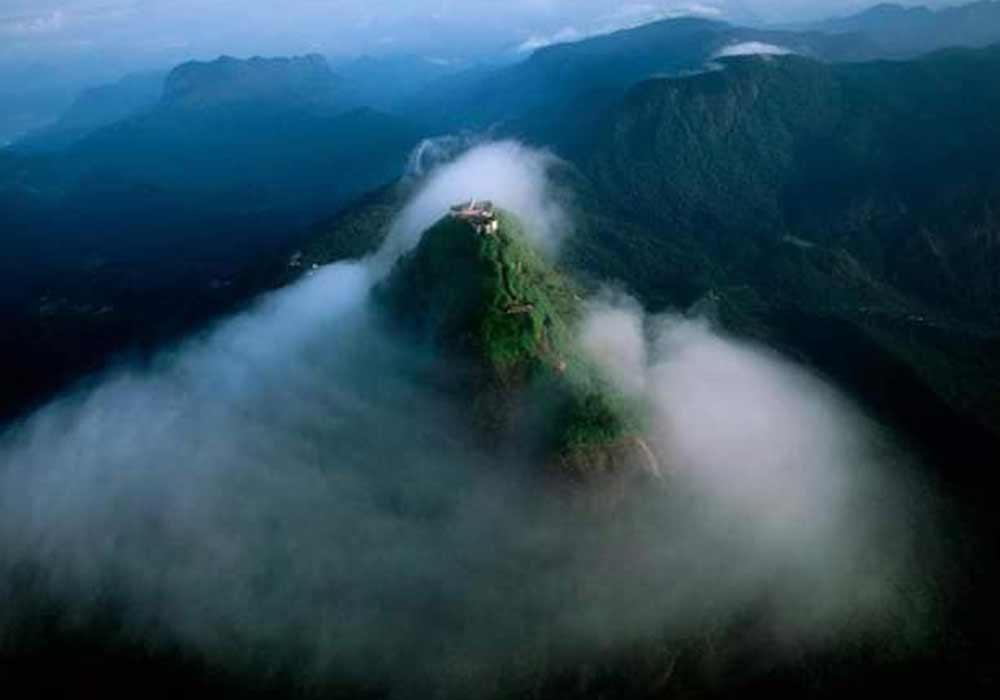The sacred sri pada footprint a pilgrimage journey
By Tripceylon
Mon Jun 09 2025
7 mins read

Introduction to Sri Pada Peak
Sri Pada, also known as Samanala Kanda, is one of the most sacred and iconic mountains in Sri Lanka. Standing at 2,243 meters (7,359 feet), it attracts thousands of pilgrims from multiple religions every year who climb the mountain to witness the sacred footprint at the summit. This legendary footprint is believed to be that of Lord Buddha by people.

Why Is Sri Pada Sacred?
The summit holds a 1.8-meter rock formation believed to be the sacred footprint of the Buddha, giving the mountain its name “Sri Pada,” which means “Sacred Footprint” in Sinhala.
This revered site is a major pilgrimage destination for Buddhists, who believe that Lord Buddha left the impression during his third legendary visit to Sri Lanka. For centuries, devotees have undertaken this sacred climb as an act of merit, devotion, and spiritual reflection. The site embodies deep spiritual reverence in Buddhist tradition and serves as a beacon of peace, discipline, and connection to nature.

Best Time to Climb Sri Pada
The ideal time to hike is during the Sri Pada Pilgrimage Season:
- December to April, especially on Poya (full moon) days.
- Trails are lit, tea stalls are open, and the weather is dry.
- Avoid weekends and Poya days if you prefer fewer crowds.

Climbing Routes
There are five main trails to reach the summit of Sri Pada, each offering different levels of difficulty and scenic value. However, the most frequented, convenient, and well-maintained trail is from Nallathanniya, commonly known as the Hatton Route.
Hatton/Nallathanniya Route (Most Popular and Accessible)
- Trail Length: Approximately 7 km from base to summit
- Elevation Gain: Steep climb with over 5,500 well-laid stone steps
- Climb Duration: Typically 2 to 5 hours to ascend, 1 to 2 hours to descend (depending on fitness and crowd)
- Trail Conditions: Well-lit path suitable for night climbs, with frequent rest areas and hand railings on steeper parts
- Facilities: Numerous food and drink stalls, tea shops, and first-aid stations along the trail
This route is highly recommended for first-time climbers and pilgrims due to its accessibility, infrastructure, and spiritual ambiance. The gradual incline and community presence create a sense of encouragement throughout the journey.

What to Expect During the Climb
- Begin climbing by 2–3 AM to reach the top for sunrise.
- Encounter tea stalls, prayer flags, and fellow pilgrims on the way.
- You may hear chants and see oil lamps lighting the path.

At the summit:
- Witness the spectacular sunrise and the triangular shadow cast by the peak.
- Ring the summit bell for each successful visit.
- Visit the footprint shrine, which is housed in a small temple.

What to Bring for the Hike
- Warm clothes (cold temperatures at summit)
- Flashlight/headlamp (essential at night)
- Snacks and water
- Small offerings if participating in rituals
Rituals & Spiritual Etiquette
- Stop at Maha Saman Devalaya in Ratnapura or Nallathanniya for blessings before climbing.
- Carry a lotus flower or light a small oil lamp during the ascent.
- Pilgrims often chant and meditate during the climb.
Cultural Tip
Sri Pada is not just a hike—it is a pilgrimage. Walk quietly, respect others’ beliefs, and support local vendors by buying tea or fruit on the trail.
Frequently Asked Questions